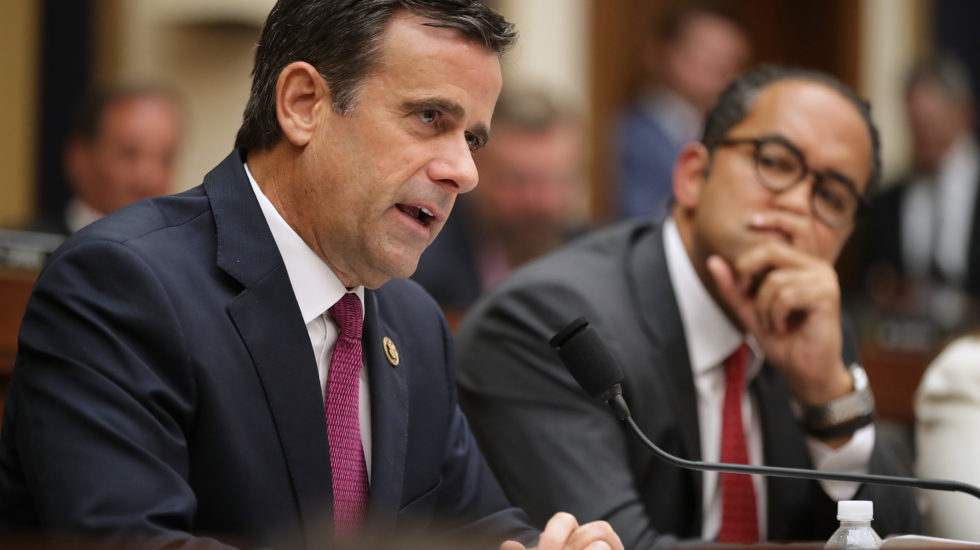It’s increasingly clear that Rep. John Ratcliffe (R-TX) is facing a tough sell in the Senate to win confirmation as President Trump’s new intelligence director.
That’s because his only significant qualification for the job appears to be his loyalty to Trump.
As the New York Times reported after Ratcliffe’s nomination was revealed in a tweet on Sunday, “…Ratcliffe’s main intelligence experience has come as a member of the House Intelligence Committee, which he joined this year….”
“With Senator Rand Paul, Republican of Kentucky, almost certain to oppose any nominee to the position, Republicans can only afford to lose two more yes votes if Democrats line up against the nomination,” the Times added.
Before being elected to Congress in 2014, Ratcliffe’s only experience as a public servant was one year as a U.S. attorney and as mayor of Heath TX, a town of about 7,000 east of Dallas. He has been on the House Homeland Security Committee — but not its intelligence subcommittee — since 2015.
Ratcliffe was among the House members most critical of special counsel Robert Mueller and the findings in Mueller’s report on Russian meddling in the 2016 election.
Speaking directly to Mueller during the recent hearings, he said much of the report “managed to violate every principle in the most sacred of traditions about prosecutors not offering extra-prosecutorial analysis about potential crimes that aren’t charged.”
Trump is said to have been delighted by that performance.
Predictably, Democrats appear united in opposing the notion of putting Ratcliffe in charge of U.S. intelligence.
“Congressman Ratcliffe is the most partisan and least qualified individual ever nominated to serve as director of national intelligence,” said Sen. Ron Wyden (D-OR), a member of the Senate Intelligence Committee.
A bigger problem for Ratcliffe is that Republican reaction to the nomination “was more tepid than the White House hoped for,” says the Times.
“Senate Majority Leader Mitch McConnell (R-KY) didn’t mention Ratcliffe when he issued a statement praising his friend and former Senate colleague, Daniel Coats, who will step down as the intelligence director next month,” noted the Washington Post. Coats plans to depart on Aug. 15, barely two weeks away.
“The cool reception from members of the president’s own party reflected the split at hand: For what is supposed to be perhaps the most nonpartisan job in Washington, Mr. Trump selected one of the capital’s fiercest political warriors,” the Times said Tuesday.
Some outside observers are far more strident about Ratcliffe than even the Democrats.
“That Ratcliffe should not be confirmed is overwhelmingly obvious,” wrote Charles Pierce in a commentary in Esquire magazine. “He has no experience. He is being appointed because a criminal presidency needs a front man in intel.”
Tellingly, even if Ratcliffe is confirmed, he might be out of a job again, or significantly weakened, should the president — notably cool and suspicious toward his own intelligence services — get his way.
“Trump has privately said he thinks the Office of the Director of National Intelligence represents an unnecessary bureaucratic layer and that he would like to get rid of it,” an unnamed source told Axios. “He has been told that eliminating the ODNI is not politically possible, but he would still like to ‘downsize’ the office.”



